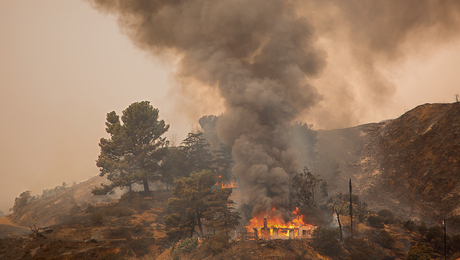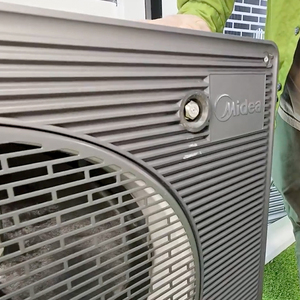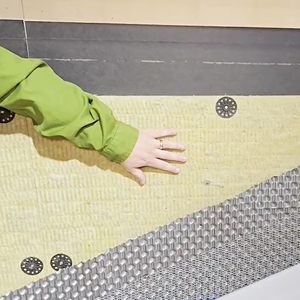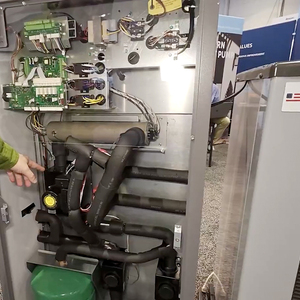Perhaps I already know an answer, but I am wondering if it is really possible to get rid of the damage from smokers living in a house. I understand nicotine creates a resin that can be somewhat broken down by applying bleach and/or TSP to walls and all other surfaces, followed by priming with a shellac-based primer. That may provide some immediate results. However, I feel it is absolutely necessary to replace the HVAC system’s ductwork, and if not possible to sterilize, the furnace/air handler unit. Let’s say I can do that, and proceed with getting rid of the resins. My question is, does the “stack affect” whereby air is traveling through a house from the lowest level (foundation vents in a crawl and/or basement areas) through wall cavities and electrical outlet openings, plumbing chases, etc. (since base plates and sill plates and top plates are not air tight), especially in baloon framing, and can cause this smoker junk to travel through the wall, embed into the back side of the drywall or plaster, and make a home in the insulation in an exterior wall, etc. I can imagine doing all this cleanup work, replacing the HVAC, and then possibly having an issue from the stack affect and the remaining chemical contamination that I cannot access. Is this a valid concern?
Anyone have experience with this concern? Thanks!
![]()



















Replies
Your concerns have gone beyond valid already.
If you replace the ductwork you will tear out much of the walls and ceilings, so you might as well do it all. But your money would be better spent on a shrink.
Clean the walls (& ceilings and floors and all of the trim), paint if you must, hire the ducts cleaned.
This house has a basement and does not require tearing out walls since it has no wall ducting. There are over 1000 toxic chemicals in cigarette smoke. Over 15 years of chain smokers, and we have a potential problem with ability to inhabit without total removal. Stack affect can cause a lot of issues over time in many houses. Nicotine resins cannot be cleaned without chemicals to break down the resin. Duct cleaning is inadequate for removal of resins that may have built up.
Original post: Would appreciate input from others that deals with the topic. Thanks.
When you get through getting all of the chemicals from the smoke out you can start removing the formaldehyde from the wall sheathing, roof and floor decking etc. etc. Next you can start getting the asbestor out of the wall finishes etc. etc.
Unproductive commentary at best. Probably you are a smoker to be so distant from the issue?
Perhaps the moderator here on FHB can step in here and refocus this post and suggest people refrain from
disconnected responses. Or I could take my otherwise beneficial post and find another site where there is a
better more professional standard.
note:
this post was not visible earlier, so I reposted this
-calvin
john, that's all the moderation I got.
Keep Your Perspective
First off, I simply cannot abide tobacco smoke. The slightest hint sends my sinuses into hyperdrive and causes great discomfort. So, please, listen to me when I say: calm down.
The smoke accumulates on COOLER surfaces. That means walls and windows, and maybe the furnace filter. There's no need to worry about the ducts and such.
The smell you get early in the heating season is simply the smell of ordinary dust being scorched inside the furnace. It will soon pass.
Windows can be cleaned easily enough.
As for painted surfaces, prime them with Kilz, or some other shellac-based primer. This will seal in the odor. Then paint as usual.
Note I said Kilz. Not the other stuff you mentioned.
Bleach is of limited use in killing mold, and has little else good to be said for its' use. If you want to 'sanitize' things, you're better off using one of the sanitizers that use a 'quat' ammonium compound. Lees odor, less damaging, and kills bugs just as dead.
TSP is used to help new paint stick to glossy paint, and that is all. While some see it as a detergent ... well, if I want detergent, I'll use Tide. For your use, OxyClean would be a better choice.
Carpeting and upholstery should simply be replaced.
Now ... a word in favor of the smoke residue ....
The residue can offer you suggestions of where the house needs attention. For example, the brown 'dots' on the bathroom ceiling tell you moisture is condensing there- which means the bath fan is inadequate. A larger fan, better air intake (that means a gap under the door), and better exhaust duct will fix that.
Other areas that are exceptionally stained are either cold spots, or air leaks. You'll want to fix those.
Finehomebuilding. Where carcinogenic substances are acceptable. Are all you guys smokers?
An HVAC system is a MAJOR issue with distributing nicotine resin and the 999 other chemicals through the house, so it has to go. Common sense. Smoke travels through the air. Thus the stack affect idea. Other building science sites I have posted on agree with me about these issues, but so much for comparisons at this point.
Bleach breaks down the resin, so does the TSP, according to several other sources with experience in this matter.
The post was about whether the stack affect plays a role in distributing chemicals and toxins in a smoked-in house. Been on here for over 13 years and the site seems to have just gone downhill. It used to be helpful and focused and people dealt with questions effectively.
What Do You Want?
The same 'end of the world' critics you seem to like will also wax poetic about the evils of chlorine in drinking water, and all the cancers that will cause. Yet you want to use bleach?
In the 70's, we heard all about how 'phosphates' were ruining the environment, and you want to use TSP?
There's not a thing in a house that does not cause cancer- at least, according to somebody. Live outside? Nope- sun causes cancer. Retreat to a cave? Nope- argon.
Common sense? Common sense tells me to open the windows, Prime & paint. Replace the drapes. Stop worrying.
I think your only option is to burn the place down and start over from scratch.
You say the house has a basement, but you fail to mention radon abatement.
the replacement of the duct work is completly up to you. If you have easy acess to it and the unit is 10-15yrs old then replacing the duct work will also provide you with a tigher system with much less air leaking.
I would go with a vinigar/water mixture to clean wall and hard surfaces that worry you. the vinigar smell dissapates over night if not mixed to heavly with vinigar.
Bleach won't do a thing to clean smoke off a wall, TSP will work fine but will also take your skin off if used in too high a concentration. 409 works very well and I've used many gallons of it to remove smoke residue from houses and cars. Sometimes it's not even necessary to repaint. However, if you do paint prime first with a shellac primer and then topcoat. Duct cleaning will not remove smoke residue so I would replace the AC system and the ducts and grills. The only place that smoke could get into the walls would be spots that leak air already and you'll never know where they are without opening the wall to look for dirty insulation.
My question is, how does a person like this actually funtion in modern society? How do they go to the store to buy paint when driving a car is millions of times more dangerous than living in house that has been smoked in? It is far more likely in most everywhere in the country that they have radon exposure wherever they live that MIGHT cause them cancer than it is for residual smoke particals. The funny part is that nearly all health professionals agree that stress and worry causes and/or exacerbates nearly all health issues, so their unjustified fears are likely doing them more harm than the left over chemicals in the home.
I had an aunt, God rest her soul, that wouldn't let her little boy play in our basement because the air was going to harm him. Her little boy grew up and moved away and maybe once came back to visit her and show her her grandson. He flew into town the morning of her funeral and she wasn't even in the ground yet before he was headed back to the airport. She was a wonderful lady but her nuttiness drove him away.